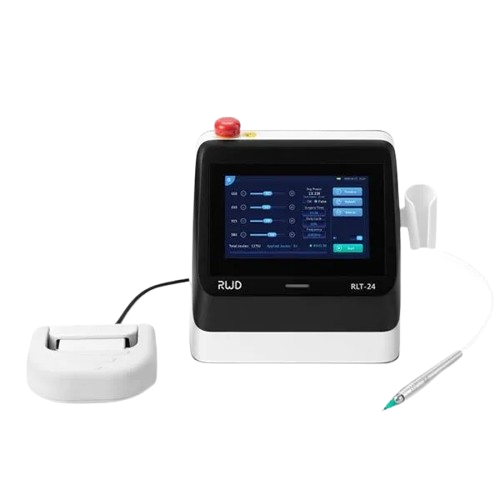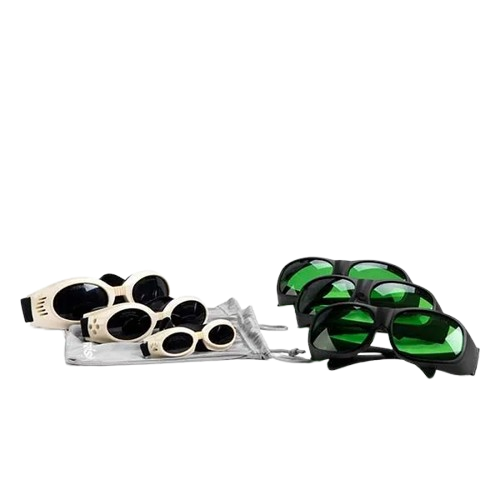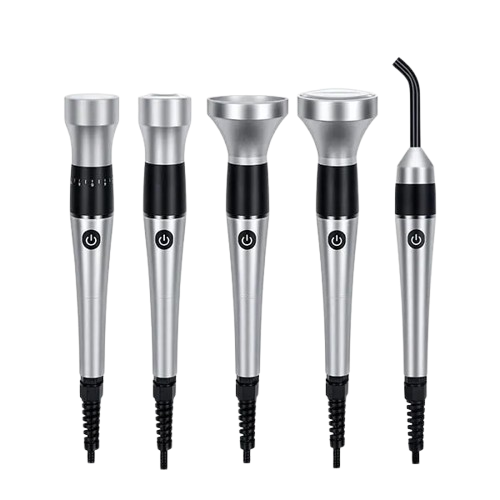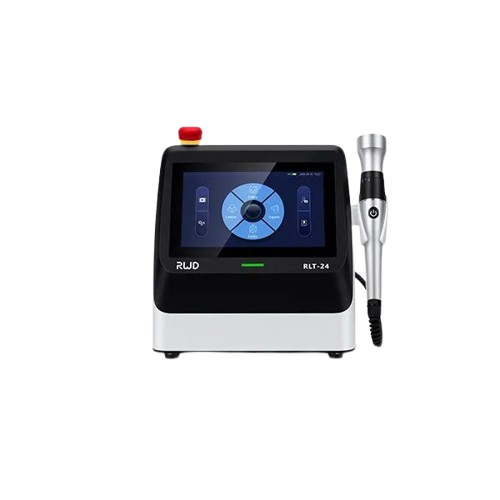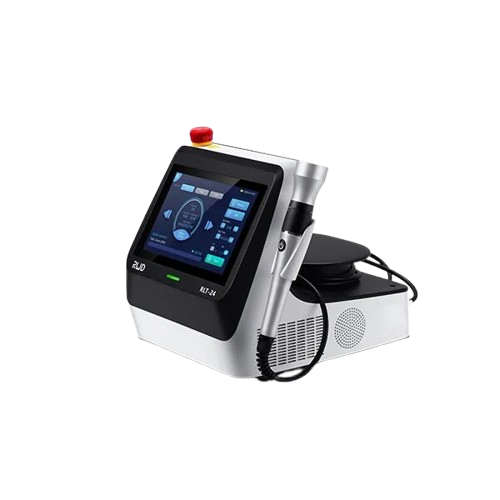- High power: the laser power is up to 24W, with remarkable treatment effect, stable light, safe and fast;
- Intelligence solution: more than 1,300 recommended treatment built in, featured by easy operation and easy control by veterinarians;
- Dual applications: combined with the optional surgical accessory kit, the device can support both therapy andsurgery applications to get involved in the complete Intraoperative-Postoperative recovery process;
- Multiple modes: support three laser emission modes: CW mode, Pulse mode and ISP mode. The combination of multiple modes can improve the treatment efficiency, reduce thermal burns, and intensify laser treatment;
- Four wavelengths: arbitrary combination of four wavelength lasers of 650nm, 810nm, 915nm and 980nm, superior lasers of different wavelengths available for different cases, and wider clinical application scope;
- User-friendly design: LCD touch screen; the rear-mounted large optical fiber winding disk, which is convenient for storage and protects the optical fiber and prolongs its service life;
- Features: built-in video tutorial board, “hands-on” teaching, and no difficulty in operation; automatic storage of treatment records for easy information traceability.
Technical Parameters
| Parameter | Details |
| Laser Source | High powered laser diode module |
| Screen Size | 7-inch LCD touch screen |
| Screen Pixels | 1024×600px |
| Device Size | 290×242×270mm |
| Net Weight | Not more than 4.5KG |
| Battery Capacity | 2600mAh |
| Aiming Beam Wavelength | 650nm |
| Aiming Beam Power | < 25mW |
| Frequency | 1~20000Hz |
| Wavelength Combinations | 650nm, 810nm, 915nm, 980nm |
| Output Power | CW mode, max power 24W |
| Pulse mode, max average power 12W | |
| ISP mode, peak power 28W |
Order information
| Name | Quantity | Usage description | Remarks |
| Veterinary Laser Therapy Device | 1 | Laser therapy | Standard |
| Optical fiber handpiece | 1 | Laser transmission and control (for laser therapy) | |
| Lens | 5 | Change the beam size to realize optimal treatment and diversity | |
| Protective goggles | 6 | 3 for human and 3 for animals for eyes protection | |
| Interlocking safety system | 1 | The interlock should be connected to the device to prevent any personnel entering the room and being exposed to the laser irradiation | |
| Power adaptor | 1 | Device power input | |
| Toolbox | 1 | Store lens and therapy optical fiber handpiece | |
| Laser dust cover | 1 | Protect the device from dust | Optional
(Laser Surgical Accessory Kit) |
| Laser Surgical Fiber | 1 | Laser transmission (for laser surgery) | |
| Laser Surgical Handle | 1 | Control laser fiber movement, can be sterilized | |
| Fiber Stripper | 1 | Stripping fiber coating | |
| Fiber Cutter | 1 | Cleaves to remove used or contaminated fiber terminations | |
| Laser Needle | 10 | Fix and guide fiber terminations. | |
| Laser Foot Switch | 1 | Control laser transmission and pause | |
| Trolley case | 1 | For storage of device, goggles and other accessories | Optional |
| Trolley | 1 | For placing and moving device and needed accessories |
Advantages of Laser Therapy
- Pain Relief
Laser decreases nerve sensitivity by decreasing bradykinin. It normalizes ion channels and releases endorphins and enkephalins that produce an analgesic effect. - Anti-inflammatory
The light from the laser can decrease the release of pro-inflammatory chemicals, thus reducing the inflammatory signals in the region. - Accelerated Tissue Repair and Cell Growth
Laser light stimulates fibroblast development in damaged tissue. And photons of light from lasers penetrate deeply into tissue and accelerate cellular reproduction and growth.
Definition
Laser surgery is a surgical method that uses a laser beam to cut tissue instead of the real scalpel. The laser beam is collimated and has a high concentration of energy to effectively vaporizes or separates tissue.
Advantages
- Wider Application
It can be combined with endoscopes and other instruments to participate in a variety of surgical protocols including extracorporeal ablation, gingivectomy, endoluminal polypectomy and intraluminal tumor ablation.
- Less bleeding
The thermal effect of the laser can weld the small blood vessels, lymphatic vessels and nerve endings around the wound, accelerating the closure process to achieve the fast hemostasis.
- Shorter Surgery time
The focal point of the laser surgical fiber can be likened to a sharp blade. The highly focused energy and the heat generated will ablate the target tissue rapidly.
